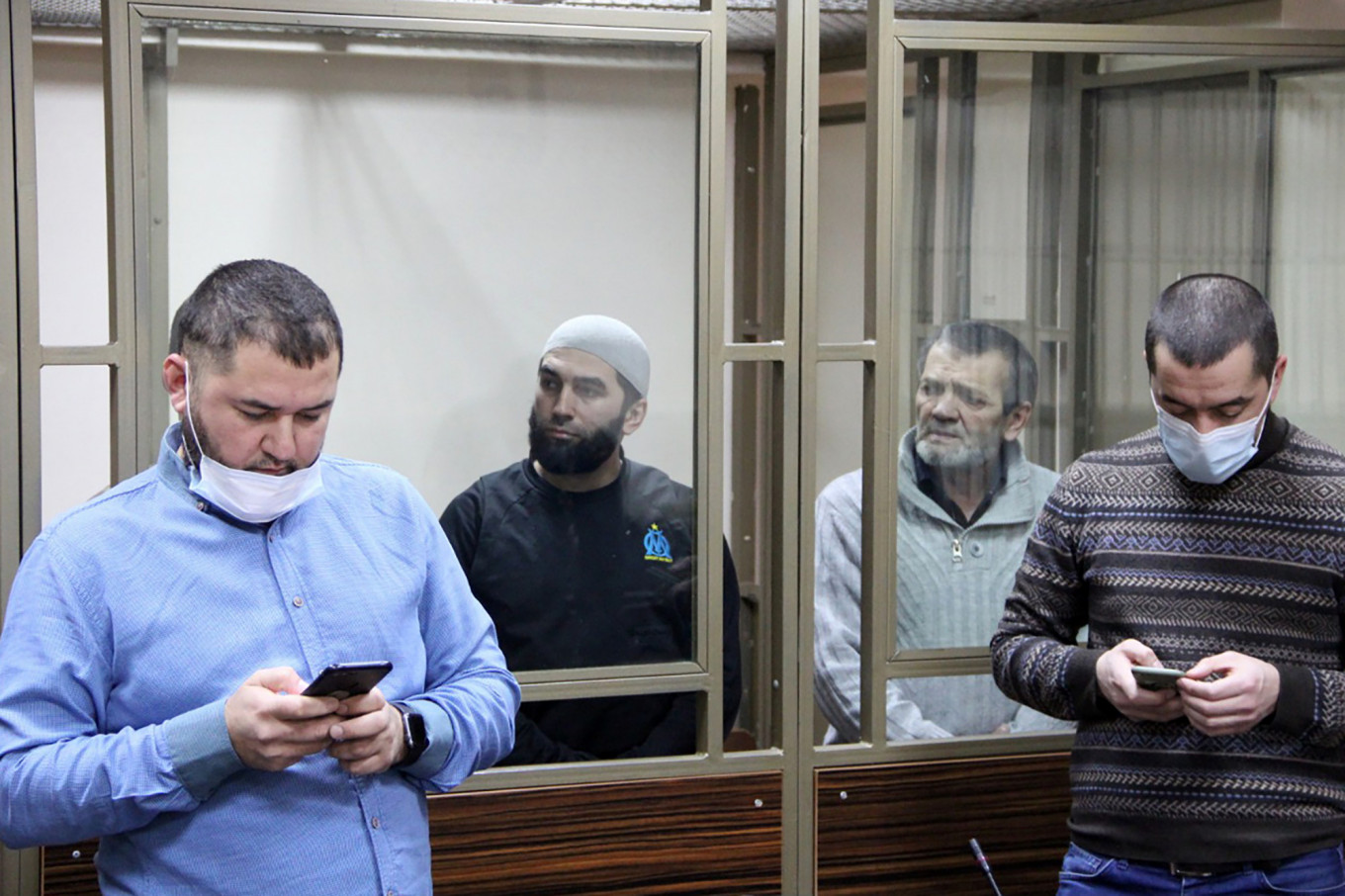
Russia has sentenced three Crimean Tatars to lengthy prison terms for plotting to seize power by force and for their membership in a banned Islamic group.
Crimean Tatars, a predominantly Muslim ethnic minority, have largely opposed Russia’s 2014 annexation of Crimea from Ukraine. Russia has prosecuted hundreds of Crimean Tatars on terrorism charges, drawing criticism from rights groups who say Moscow is locking up ideological opponents as religious extremists.
A military court in southern Russia on Tuesday sentenced Enver Omerov to 18 years, Ayder Dzhapparov to 17 years and Riza Omerov to 13 years in prison after finding them guilty of extremism and planning a violent seizure of power.
According to investigators, Enver Omerov and Dzhapparov founded a division of Hizb ut-Tahrir in the city of Belogorsk, where they recruited members, spread propaganda and worked to “create favorable conditions for the violent seizure of power and violent change of Russia’s constitutional order.” Hizb ut-Tahrir has been banned as a terrorist organization in Russia since 2003.
As a member of the division, Enver’s son Riza Omerov also spread the group’s ideas and recruited members, investigators said.
The defendants pleaded not guilty and called the charges “indiscriminate and fabricated.”
Prosecutors had requested sentences ranging from 13 to 19 years for the three defendants. The verdict has not yet entered into force and can be appealed.
About 50 Crimean Tatars protested outside the court in support of the defendants, local news reports said.
On the eve of the verdict, Russian traffic police detained over 100 Crimean Tatars who were attempting to cross the Crimean Bridge toward Rostov-on-Don to attend the hearing, according to the Crimean Solidarity advocacy group. They were held until early Tuesday morning, the group added.
Ukrainian human rights ombudswoman Lyudmyla Denisova condemned the verdict, calling it “a violation of international agreements and international law” by Russia.
The Memorial human rights group last year recognized the three defendants as political prisoners.
Hizb ut-Tahrir is also banned in Germany, Kazakhstan, Turkey, Pakistan and a number of other countries. The Ukrainian government had allowed the group to legally operate before the annexation of Crimea.

Leave a Reply